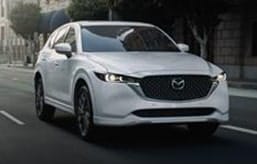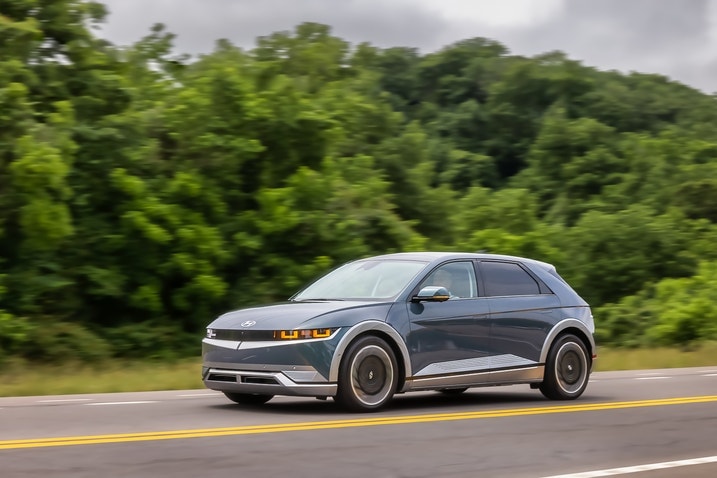- A class-action lawsuit alleges a faulty charge port slows or completely stops electric vehicle recharging.
- Overheating charge ports are said to affect the Hyundai Ioniq 5 and Ioniq 6, Kia EV6 and Genesis GV60.
- The flaw occurs during Level 2 charging, resulting in dramatically slower charge times or a complete failure to recharge.
Class-Action Lawsuit Alleges Plug Defect With Hyundai, Kia and Genesis EVs
Overheating charge ports are the focus of a class-action lawsuit against Hyundai, Kia and Genesis
A class-action lawsuit alleges that a faulty charge port design is causing extremely slow charge times, or complete recharging failures, in the Hyundai Ioniq 5 and Ioniq 6, Kia EV6 and Genesis GV60. The plaintiffs in the nationwide case — which is being handled by the California-based automotive law firm Hagens Berman — contend that the ports in these four EVs routinely overheat during Level 2 charging. The issue occurs in as little as 30 minutes after beginning a charging session, according to the complaint, and does not automatically restart after the port cools down to an "acceptable" temperature.
Am I Ready for an EV?
- EV ownership works best if you can charge at home (240V outlet)
- Adding a home charging system is estimated to cost $1,616 in
- Edmunds is partnering with Treehouse, an independent provider of home EV installation services. Learn more about the installation services partnership
The lawsuit contends the affected Hyundai, Kia and Genesis EVs are advertised as being capable of recharging at 48 amps. However, the suit says charge failures are happening at charge rates of as low as 28 amps. In one example cited by Hagens Berman, the plaintiff/owner of a 2023 Hyundai Ioniq 5 is finding that a full recharge of their vehicle requires 20 hours, at a 5% charge rate per hour. This is far from the Ioniq 5’s as-advertised six-to-seven-hour estimated charge time (depending on battery size) when using a 240-volt Level 2 charger.
Further complicating matters, the suit says a fix issued by Hyundai via a technical service bulletin in March 2023 was only a “band-aid” for the problem. In an emailed response to Edmunds concerning this ongoing litigation, a Hyundai representative issued the following statement:
“Hyundai is aware of isolated reports of charging interruptions with the IONIQ 5 when used in connection with certain level 2 home chargers. A software update is available for IONIQ 5 owners encountering this issue that reduces the likelihood of a stopped charging session by slowing the charging rate in response to charging temperature increases. Hyundai is further investigating the issue to determine the root cause and evaluate other possible solutions.”
Edmunds also reached out to Kia and Genesis, though both automakers said they had no comment on the matter at this time.
While the lawsuit acknowledges an engineering solution was made, it contends the software update simply reduces the maximum charging level to 23 amps if any overheating in the port is detected.
“This so-called fix does nothing to address the real problem, which is that these vehicles were not manufactured to reliably charge at a rate even close to 48 amps. It’s unacceptable for Hyundai to put a Band-Aid on such a serious defect impeding the vehicle’s stated performance,” stated Steve Berman of Hagens Berman, the firm’s lead attorney on the case, in a statement regarding the lawsuit. Berman contends these repeated charging failures are costing owners time and money, particularly when the affected EV completely fails to charge.
“Car owners rely on them to drive to work, drop off their kids at school and get to doctor’s appointments. Unexpectedly finding a car with an uncharged battery in the morning causes serious disruption to people’s lives and could have dire consequences in an emergency,” Berman stated. “These aren’t hybrids. The battery charge is essential, and we believe the state of these EVs is simply unacceptable.”
The press release announcing the class-action lawsuit states that the suit "brings claims of violation of the Computer Fraud and Abuse Act, violation of the California Computer Data Access and Fraud Act, and violations of the applicable state consumer protection laws [...]." While no specific monetary figures are mentioned, the press release stated it seeks “to recover just compensation for vehicle owners and lessors.”
Edmunds says
Recharging is an essential element of owning an electric vehicle, so any potential issue that could significantly slow charge times — or unexpectedly stop a charging session altogether — is a major concern. This lawsuit contends a software update wasn't enough and a more permanent solution is needed to address plaintiffs' complaints regarding overheating charge ports in their Hyundai, Kia and Genesis EVs.






 by
by